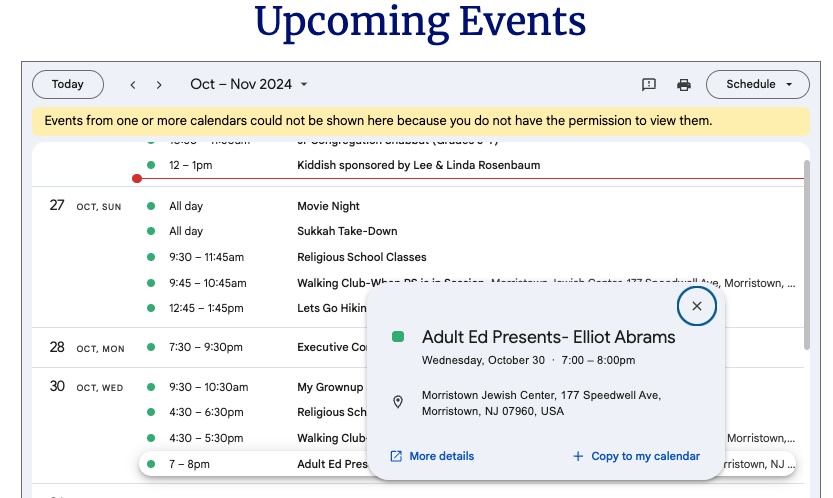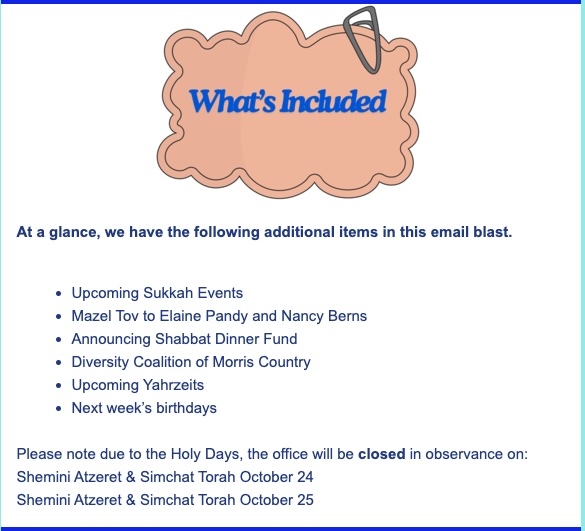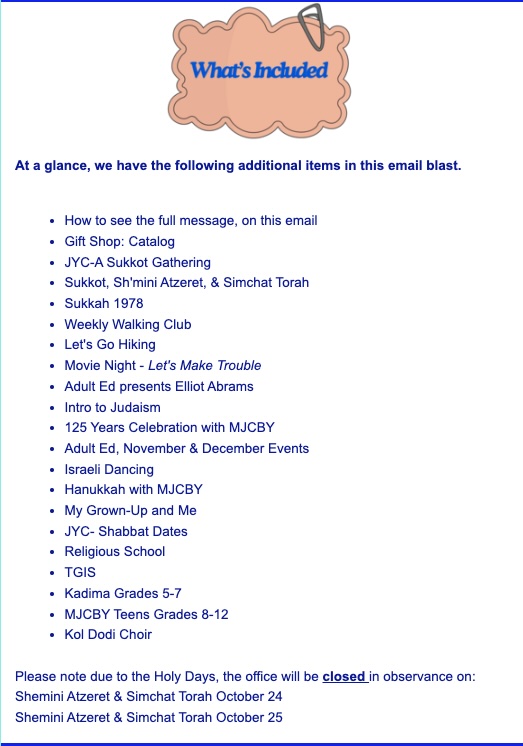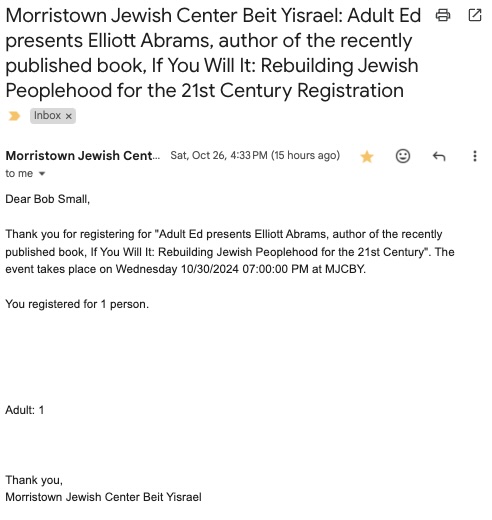- 177 Speedwell Avenue, Morristown, NJ 07960
- 973-538-9292
- office@mjcby.org
You are here: Home » WEB: Case Study in Poor Communications
Jump to: Case Study | Problem Statement | Recommendation
The website and our supporting communications channels are our public, on-line face and the calendar & events are crucial components. In this time of decreasing membership and increased competition, these have to be great! I believe that the issues documented below must be addressed so that we can get it right. I share these thoughts out of a deep concern for the congregation's wellbeing and future success. Please let me explain.
October 27, 2024
Background
Broken Communications Channels





[top]
Problem Statement: Our public communications have errors, are uncoordinated, and their designs do not facilitate engagement from our community.
[top]
We should establish a sustainable, holistic process — with defined roles and responsibilities for who has oversight and how events will be described in the 3 channels. The process should be based on these (proposed) design principles:
[top]

